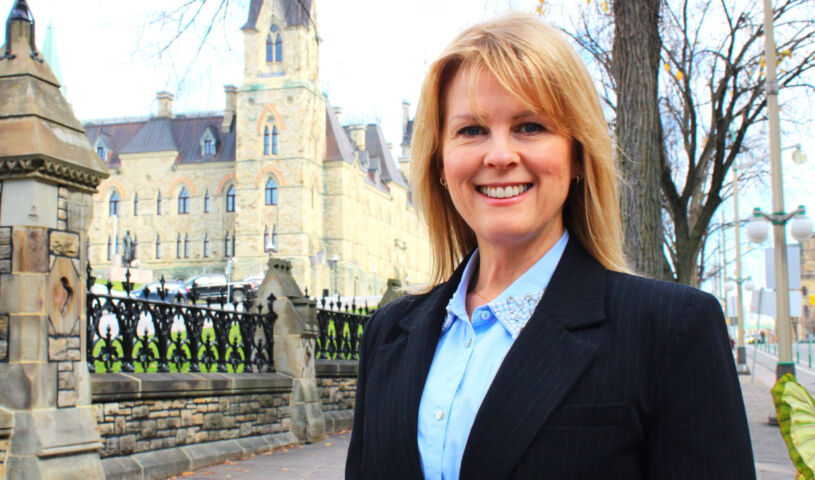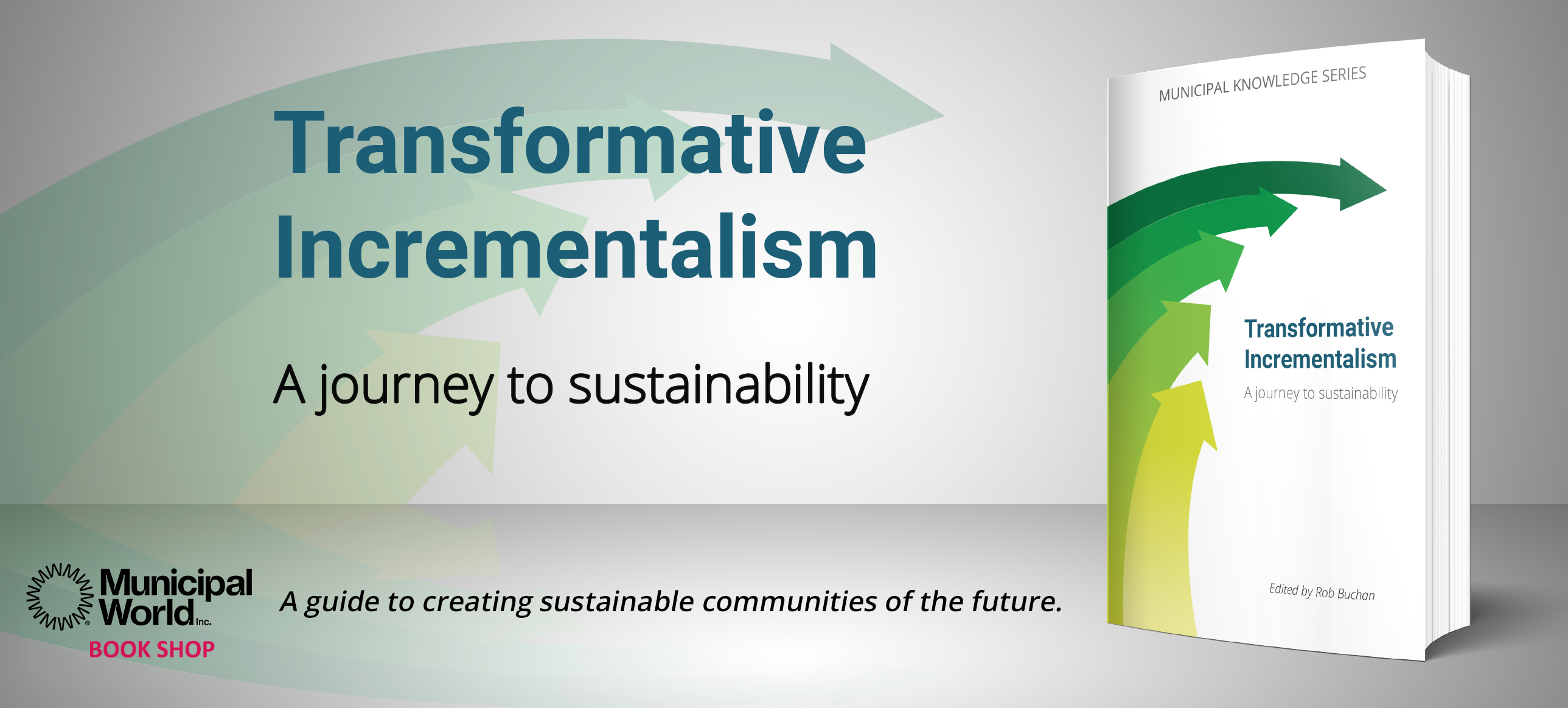FCM’s new president focuses on community connection
 Rebecca Bligh is a Vancouver city councillor and the recently named president of the Federation of Canadian Municipalities. Photo: FCM Media Relations
Rebecca Bligh is a Vancouver city councillor and the recently named president of the Federation of Canadian Municipalities. Photo: FCM Media Relations
Rebecca Bligh is no stranger to the pressures of local government. For one, Bligh was elected to Vancouver city council in 2018.
Now, as the recently appointed president of the Federation of Canadian Municipalities (FCM), Bligh will be able to bring her talents to nationwide conversations. Bligh replaces Geoff Stewart, the City of Colchester’s former deputy mayor, who held the position since the start of summer 2024.
Dealing with the Pressure
While excited for the opportunity to serve as FCM’s president, Bligh acknowledges the added pressures and workload. But also, she is quick to celebrate the opportunity her position provides to help build a stronger community.
Bligh praises FCM as “an incredible organization” that is working with municipalities across Canada. When contemplating her new role, Bligh said the first thing that comes to mind is connecting with member municipalities across the country. That goes for rural, urban, and everything between.
Having served on FCM’s board since 2018, Bligh said she has built many meaningful relationships. Those conversations have helped lift the voices of local leaders while creating meaningful impact. That, she added, is her number one priority with FCM – getting engaged with the members and making sure that they feel represented.
“While we’re tackling some of these issues that really do need serious engagement and solutions at that national level, it feels like actually a privilege and an honour to be able to advocate for those issues directly with ministers, directly with the federal government, with the support of FCM staff,” Bligh said. “It’s a lot more work, but I feel very fulfilled and excited and as I say, quite humbled by the opportunity to represent municipalities in this way.”
Working with the Membership
Whether living in a small, northern community or a large urban centre, Bligh said the challenges for municipalities are often the same. While the scale may be different, she said there is no difference in her approach.
Bligh quickly realized that FCM’s strength, like the country’s, depends on rural partners meeting community needs. Whether it’s infrastructure, housing, or economic development, renewing local infrastructure is essential.
If rural communities feel supported in their ability to deliver services to their residents, Bligh said, it makes the rest of the country stronger.
“We know that urban centres become quite attractive to folks who are looking for employment opportunities or they’re lacking the services that they need in their own home communities, including housing and other services,” she said. “So, if we can help advocate for that in our rural communities, our country can grow in a way that’s sustainable for the long term.”
Framework for Sustainable Growth
The sustainable of municipalities is the number one priority for FCM. That goal is the mission of FCM’s Municipal Growth Framework. The framework would consist of reforming how local governments are funded to support Canadians’ quality of life. It is crucial for municipalities to tackle their most pressing challenges, such as infrastructure renewal, climate change adaptation, public safety, and housing and homelessness.
Bligh said she feels there is “broad alignment across the board” as municipalities are trying to address what FCM calls “21st century problems with a 19th century revenue framework” that is not working today and won’t work for the future.
The existing funding model is outdated, Bligh said. It is a problem she believes all levels of government are committed to solving. She added that there’s a strong case for advocating with the federal government to modernize municipal budget funding.
“There’s an urgency and I think we can agree on that. I would say that there is interest to think outside the box in terms of what was traditionally revenue generating sources for municipalities, largely property taxes, to make sure that there is long-term financial stability,” Bligh said. “And I have to be very clear, this is not about creating a new tax for Canadians. This is just a way to more efficiently use existing tax dollars by providing direct funding to municipalities so that they can tackle the challenges that they face in people’s day-to-day lives.”
Growing Concern about Hate
The challenges being faced by local leaders today aren’t just about infrastructure needs and fiscal stability. In today’s social media world, politicians are often being targeted with hate, intimidation, and even threats.
This situation has caused many civic-minded individuals to resign before their terms ends or decline to stand for re-election. Worse still, others are refraining from putting their name on a ballot in the first place. Bligh said this problem is one that is being witnessed at “an alarming rate,” particularly among women.
A long-standing priority for FCM was the goal of 30 per cent of elected municipal officials being women. But even after achievement that landmark, Bligh acknowledges there is “a growing concern” that while women are being elected, they also often choosing not to stay. Or, as Bligh puts it, “It’s one thing to get women elected, it’s another to make sure that they run again.”
Particularly since the COVID-19 pandemic, Bligh said, there has been a heightened level of harassment and abuse toward all elected officials. Bligh said this must be better managed. Elected officials can leverage social media to connect with their residents. Granted, they “probably don’t want to spend too much time reading comments on certain social media platforms.” It’s about creating some boundaries around what people can control as elected officials.
“It’s a concerning and growing trend that we are continuously advocating for at FCM, with the federal government actually, to take more action in terms of how these platforms are regulated and recognizing there’s a significant impact,” Bligh said. “We have great people elected to municipal government across our country. We want to keep them there and make sure they continue to serve.”
Being the Best You Can
Elected officials at all levels need to deal with these circumstances the best they can. And Bligh is no different.
How she deals with it speaks to her passion about serving her community. Bligh reflects on a recent town hall meeting around dealing with Vancouver’s housing crisis. She went and spoke with several people who express their surprise that she attended. Politicians, they said, don’t show up to these conversations.
But she did show up. She took down notes, and actively engaged in the conversation. At this point, Bligh said it became clear people just wanted to be heard. Sometimes, she explained, politicians put a lot of pressure on themselves to come up with immediate solutions right away.
This is particularly true for municipal officials as they are “the government of proximity.” People just want their elected officials to hear what they’re struggling with in their day-to-day lives. Of course, while making time for their residents, Bligh said politicians also have to find time for themselves, too.
“We can start to spread some common themes … focus our advocacy, our work, our policies toward solutions that are going to help. I try and do that,” Bligh said. “And then I think about making time for exercise, sleep, self-care. It’s something we hear a lot about these days across all sectors. Our cell phones mean we’re carrying our work and those stresses with us 24/7. So we need to prioritize. I do make a point to have my non-negotiables in terms of taking care of myself on a daily basis.” MW
✯ Municipal World Executive and Essentials Plus Members: You might also be interested in Miki Stricker-Talbot’s article: Wrestling with wicked problems.
Sean Meyer is digital content editor for Municipal World.
Related resource materials:
- FCM president focuses on communication in community building
- Municipal funding, homelessness, emergency preparedness top FCM discussions
- FCM launches fresh approach to funding municipal sustainability



